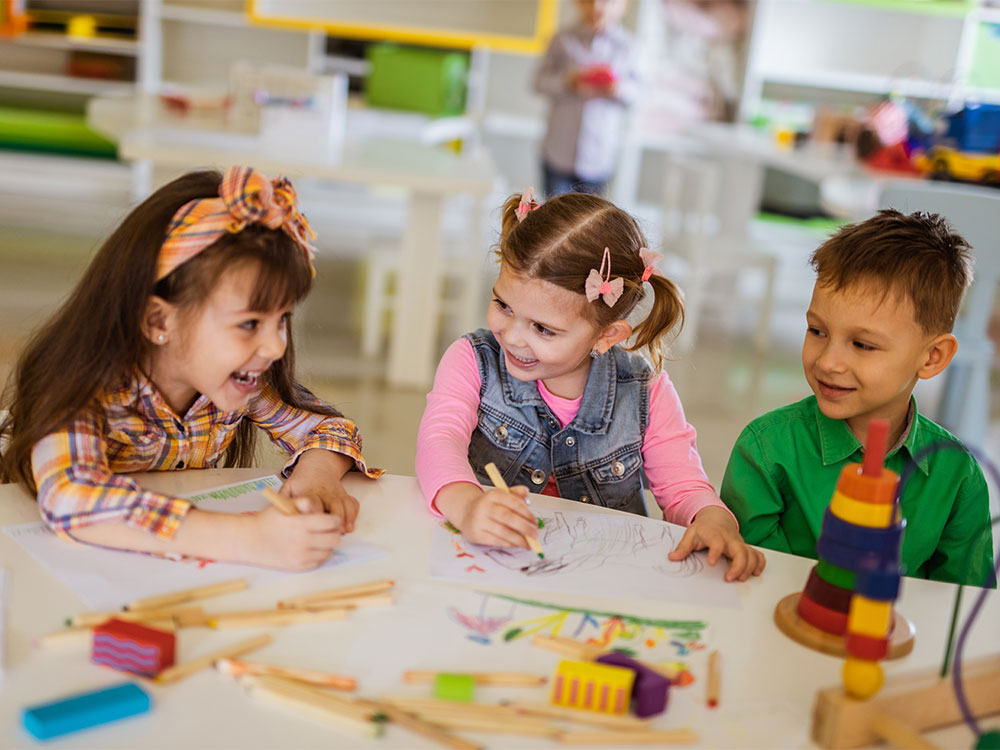To improve her communication skills, her teacher tells stories and encourages her to talk about different subjects (e.g. favorite meal, last vacation, pet, etc.).
The teacher also offers games where you have to rhyme with the words. In the classroom, there is often a corner transformed into a house, grocery store or infirmary where students can play pretend and thus develop their language and vocabulary.
Understand the world around him
At 5 years old, your child still wants to know more. Everything amazes him and his teacher is there to help him understand the world around him and the society in which he lives.
Through various fun activities, he learns some basics of math, science, geography, history and the arts. Here are some examples of things he could do in the classroom:
- Carry out simple science experiments, such as: “Which objects float and which sink?” Or “Does snow change if you put it in a pot?”.
- Look for objects of different geometric shapes.
- Play games that require operations like sorting, counting, and sequencing.
- Go collect dead leaves to learn more about the different kinds of trees.
- Look at postcards and talk with the teacher and other students about the location in order to explore cities and countries.
Complete projects
Throughout the year, different activities will allow the child to carry out projects from start to finish. The teacher guides him through the projects as he learns to organize himself, to work step by step and to persevere to get to the end.
- These could be short activities, such as a craft, a puzzle to complete, or a castle of blocks to build. It could also be a longer project of two or three weeks. For example, the preparation of an oral presentation where the child will have to introduce himself in a few points (his family, his pet, his favorite activities, etc.).
How are skills assessed?
The child receives three report cards in kindergarten. Each of the six competencies is noted in the report card by a letter, from A to D and may be accompanied by comments from the teacher.
- The newsletters present the development of your child. They allow you to see if he is having difficulty in any aspect of the program. If so, you will be able to discuss with his teacher how to help him.
- It is possible to meet the teacher during the first bulletin. This is a good time to ask if your child is listening in class, if he has friends, if he understands the instructions well or if he is having difficulty in certain activities.
- If you are worried about a behavior or a note, feel free to ask about it to understand what is going on and how to help your child. Good collaboration with the teacher facilitates your child’s development and helps him continue his learning.
Are there homework and lessons?
In International Kindergarten, not all teachers give work to be done at home. If there is homework, they generally take little time and prepare the child for learning in class.For example, if the goal for the week is to learn the letter B, the teacher might ask you to play around ten minutes a day with your child finding words with the sound B.
The teacher could also suggest exercises to be done at home in the form of a game to help a child who has a difficulty. In either case, it’s not about overloading your child with work, but simply taking a few minutes to help them learn.

